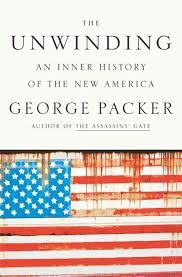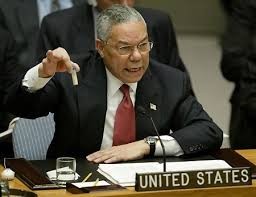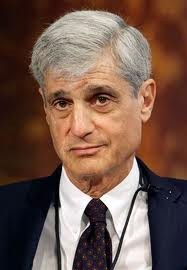
This morning Mr. Bib of Orange County, CA, USA–and, for a couple of weeks Olympic Valley–pretends (probably unconvincingly) to be your national correspondent, public affairs observer, doing his best to make sense of how somebody else makes sense. The ambitious and elegantly organized sociological screen capture that is George Packer's own effort is pleasingly derivative of John Dos Passos (USA trilogy), as everybody notes, and Studs Terkel, which nobody so far notes. But its sad, unsparing critique lacks the reasonable Socialist optimism and anger of either of these two, and mostly leaves the reader with whatever is the opposite. The frustratingly beautiful argument of The Unwinding: An Inner History of the New America depends on the question of where you are as a reader-politico and how much you apprehend is really all that “new” in America. And because I have no idea, finally, how most people see anything, I found in the excellent writing, the tired rusty flag cliché cover and the reintroduction to places and characters to be a curious if helpful and, again, beautifully written, travel guide of sorts, to a place I wouldn't mind visiting but certainly do not want to live.
]

By which I mean, of course, that reading anything at all depends on where you begin. The writing throughout this essential books accommodates too respectfully the fatalism and stuckness of the unrosy glasses of Status Quo, USA, where citizens rich and poor still seem to buy the Big Lie. It admires but is perhaps a little afraid of the reckless and joyful energy of the daunting and perhaps futile campaigns of the activists: Occupy, Elizabeth Warren (one subject profiled, admiringly), anti-war types. I am tempted to insert photos in my copy of Medea Benjamin of Code Pink and the young women who recently organized a beautiful and enraged sit-in at pharmacies chanting, “What do we want? Morning after pill! Where (sic) do we want it? Over the counter!” (Thanks, by the way, to KPFK's most excellent Feminist Magazine for playing audio of that.) Those activists and that behavior is the modeling of both assumption and a response, elevating the genuine and the sincere, and a celebration of resistance. It's where I live, or try to. It's where a late hero of mine, Alice McGrath lived. She opined famously on what I am

thinking is the majority–who knows, Packer doesn't say–for whom class and corporate hegemony and patriotic boondogglery are still news: “The ones that bother me are the ones that say they are disillusioned. So was was their illusion?”
So I guess I wish Packer had included more of the world of hopeful skepticism and resistance I see or, maybe more honestly, look for, demand, yell back at NPR about. Still, there are enough heroes here to at least define, counter, contrast the villains. I got enough, if barely, found enough, interpreted enough of Packer's profiles of Warren the “Prairie Populist,” short story master Raymond Carver (of all people, why I wonder, dead so long?), Youngstown, Ohio community activist Tammy Thomas and culinary populist Alice Waters of Chez Panisse in Berkeley to both apply the Terkel-vision critique AND not get too dizzy at what the book jacket calls the “kaleidoscopic history of the new (sic) America.”
Yes, the book is a collage, with a timeline-style collection of biographical portraits short and long, of four main characters and a city (Tampa, FL). In between are the candid, empathetic, highly affecting and narratively stylized (he's a novelist and playwright, too) sketches of some truly good (see above) and truly awful people: Oprah, Andrew Breitbart, Robert “CitiBank” Rubin, Colin Powell, Sam Walton, “libertarian” weirdo

Silicon Valley entrepreneur Peter Thiel and, early on (if you want a taste of how funny, mean and honest Packer can be), the odious clown, Newt Gingrich. I really appreciated that the portrait of the ubiquitous huckster fake intellectual con-man from Georgia came early in the book. Frankly, it's what kept me going and what makes me, finally, trust and value Packer despite the pleasantly confusing assumptions of his worldview. Remember that

Packer, whose New Yorker pieces I never miss, seemed to endorse the Iraq War, wrote about it amazingly in The Assassin's Gate, but then sort of backed off, admitting at least that ignorance and hubris ruled that particular long day if not making the kind of strident and obvious points that an everyday all-American red-blooded anti-imperialist like me would welcome. That said, I appreciate that the value of these take-aparts of very broken people – two men in particular, Powell and Rubin – are more valuable than punching them in the nose. The brown-nosery of each, both, are striking and embarrassing, and seem to me not all that original except that in this “new” America absent more vigorous reporting, the collapse as argued by Packer of a kind of institutionally-coordinated ethos (not sure about that!) of supportive myth if not real, actual support, they are poster boys for unwindingness.
When Citigroup collapsed, the ever-present and confident Rubin was not chased down by reporters. “Rubin has spent his career trying to harmonize his and Wall Street's interest with America's, and when that became impossible in 2008, he disappeared…Even Alan Greenspan admitted that he had been wrong, but the pride that had always been masked by humility would not allow Rubin to do it.”
More pride than intellectual honesty seems to have been Powell's flaw. Except that anybody, including the General, should have seen it. (Code Pink activists and their antecedents have been pointing it out for years. Just sayin!) So, needing to pretend in a kind of wound (as opposed to unwinding, torn, sadistic) America, the longtime apologist and embodier of some kind of ideal got up there in front of the United Nations and the world and did a lot more than apologize. He lied, lied and lied, for hours, with bullshit props, slides and fear-mongering to make war-mongering seem like it was reasonable and right.
If you somehow needed to have the so-called financial meltdown explained because you aren't listing regularly to economist Richard Wolff's podcasts, the damning and thorough retelling featuring Rubin and a capitalist dreamer-sap named Dean Price are just perfect. If you didn't know, or needed reminding about turd-polisher Powell, you will appreciate just how much a “true believer” can be taken, taken in, and taken out. There's the revealing–for those who need more revelation, god help us–portrait of a Democratic political player who discovers the personal and power limits of Joe Biden vis a vis campaign fundraising. And there's the basket-case study of the benighted city of Tampa, which could be, was in fact, any place where the wars, rigged financial system, political enablers planned, rehearsed, created a perfect shit storm raining down on, yes, the poor, if not all of the rest of us.
This book, beyond its terrific writing should be read, finally, by anti-war Socialist types as yours truly (and the people who love, hate them) to understand what other Americans see, pretend to see and how. Packer's storytelling makes that difficult job easy, and worth arguing about. The unwillingness to see things as they are depends on what you think you are seeing. I wonder if the people profiled here, especially the one with real power in this kooky shattered kaleidoscope country-ography would even recognize themselves. I wonder what it is people take for wisdom or insight. I wonder why I am myself left needing more.
The Unwinding: An Inner History of the New America, George Packer, FSG, 448 pgs., $27.00
Andrew Tonkovich hosts the Wednesday night literary arts program Bibliocracy Radio on KPFK 90.7 FM in Southern California.
Follow OC Weekly on Twitter @ocweekly or on Facebook!

